Ethics of Argumentation
The text elaborates on the philosophical implications of the institution of original appropriation and private property rights. It discusses the logical consequences of denying the validity of these institutions, outlining two alternative scenarios: one where individuals are subjected to unequal ownership of their bodies and property, leading to categorically distinct classes of persons, and another where universal and equal co-ownership results in the impossibility of rational action due to the need for unanimous consent. Moreover, it explores the praxeological impossibility of "universal communism" and highlights the necessity of property rights as a precondition for argumentation. The text critiques egalitarian ethics and asserts the indispensability of private property rights for rational discourse and survival.
-
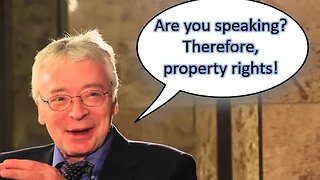 2:35
2:35
MRDeVinney
1 year agoArgumentation Ethics | You've agreed to Private Property by Speaking
2 -
 8:15
8:15
PowerfulReality
10 months agoA Challenge To The Moral Argument
8 -
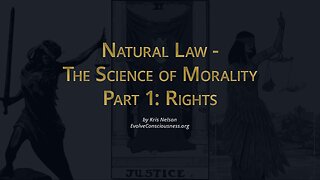 2:39:15
2:39:15
Evolve Consciousness
1 year agoNatural Law - Science of Morality, Part 1: Rights
4 -
 11:41
11:41
Daily Insight
9 months agoVoice Ethics Arguments That Don’t Make Sense
2481 -
 27:08
27:08
BreakingDocumentaries
1 year ago067. Rawls A Theory of Justice Comments, Utilitarianism, Rights
11 -
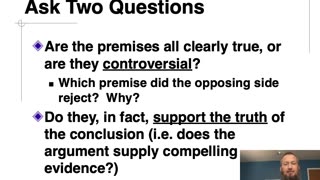 24:29
24:29
WilliamFerraiolo
2 months agoArguments for Ethics
46 -
 8:15
8:15
PowerfulReality
10 months agoA Challenge To The Moral Argument
6 -
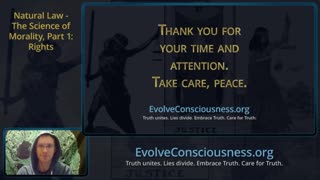 2:39:15
2:39:15
FlatEarther46
1 year agoNatural Law - Science of Morality, Part 1: Rights
66 -
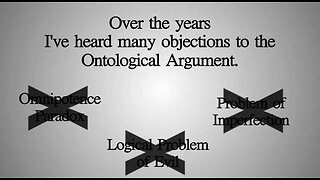 13:10
13:10
InspiringPhilosophy
1 year agoAnswering Objections to the Ontological Argument (Part 1)
43 -
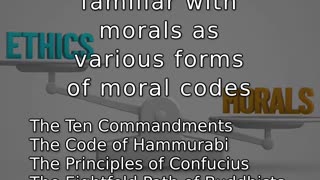 0:53
0:53
Future Pathways
2 months agoETHICS VS MORALS - Short
1